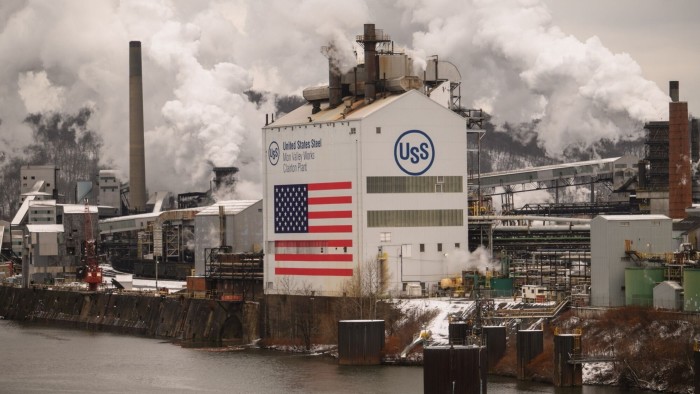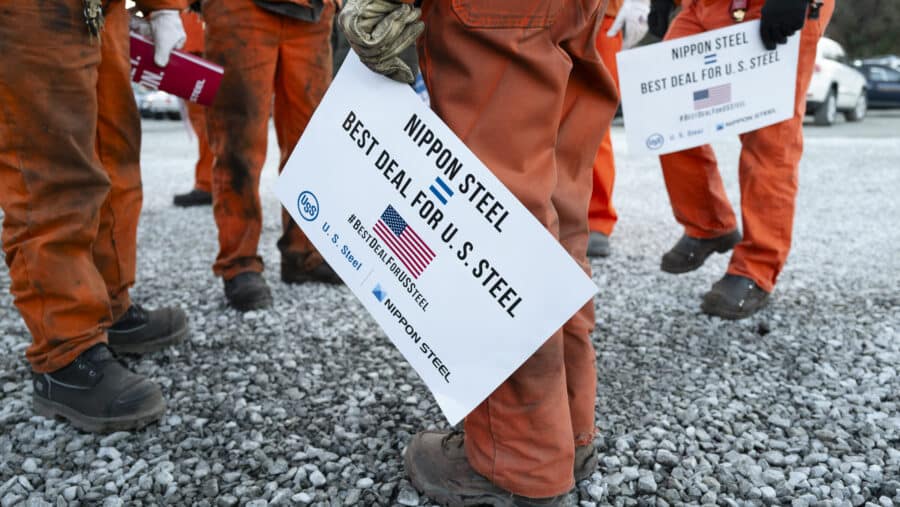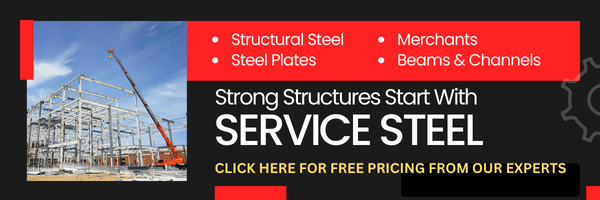U.S. Steel & the Nippon Deal: Here’s What You Need to Know
April 2, 2025 | Categorized in: News
The U.S. Steel-Nippon Steel acquisition has become one of the most talked-about deals in the steel industry. Valued at $14.9 billion, this proposed merger has ignited debates over national security, economic independence, and the future of American manufacturing. While Nippon Steel has promised to keep U.S. Steel’s headquarters in Pittsburgh and maintain union contracts, opposition from both the Biden and Trumps administrations, as well as labor unions threatens to derail the deal.
At the heart of the U.S. Steel and Nippon Steel deal are pressing questions:
- Why is U.S. Steel selling?
- What does Nippon Steel stand to gain?
- And how could this change the U.S. steel industry?
Here’s what you need to know.
Who Owns U.S. Steel? A Look at the Key Players
Founded in 1901 by J.P. Morgan, U.S. Steel was once the largest steel producer in the world, shaping the backbone of American infrastructure. It remains a major player, ranking as the second-largest steel manufacturer in the U.S., but the industry has changed drastically since its peak.
Today, U.S. Steel faces financial pressures from global competition, increased imports, and rising production costs. To stay competitive, the company sought a buyer that could offer financial stability and technological advancement—enter Nippon Steel.

Source: Justin Merriman for Bloomberg
How Much is U.S. Steel Worth?
U.S. Steel’s value has evolved significantly over the years. When J.P. Morgan founded the company in 1901 through the merger of Carnegie Steel, Federal Steel, and National Steel, the deal was worth $492 million—which translates to about $18 billion in today’s dollars. For much of the 20th century, U.S. Steel dominated the industry, but in recent decades, global competition and shifting market dynamics have reduced its influence.
As of March 2025, U.S. Steel has a market capitalization of $8.59 billion, making it the 1,883rd most valuable company in the world. While still a major player in the steel industry, its standing has declined, reflecting broader challenges in the sector. Despite this, Nippon Steel’s $14.9 billion acquisition offer, equivalent to $55 per share, represents a substantial premium compared to Cleveland-Cliffs’ lower $35 per share bid. This proposal was attractive enough that U.S. Steel shareholders approved the deal in April 2024, although regulatory challenges have since stalled its progress.
Beyond its market value, U.S. Steel remains a strategic asset in the steel sector. Its acquisition could shift power balances within the global steel market, making it a highly contested deal. The company’s facilities, workforce, and market presence in the United States add to its intrinsic value, which extends beyond financial metrics.
Who is Trying to Buy U.S. Steel?
Who Owns Nippon Steel?
Nippon Steel is Japan’s largest steelmaker and one of the world’s leading producers. The company has a long history of global expansion, having previously acquired major steel assets in India and Southeast Asia. The acquisition of U.S. Steel fits into its broader strategy of increasing its presence in North America, particularly as trade dynamics shift amid U.S.-China competition and supply chain restructuring.
Who Owns Cleveland-Cliffs?
Cleveland-Cliffs has been a key player in the U.S. steel industry, with a focus on iron ore mining and steel production. Over the years, it has made strategic acquisitions, including purchasing ArcelorMittal USA and AK Steel, to solidify its position as a major domestic producer. Its bid for U.S. Steel was seen as an effort to further integrate its supply chain and maintain American control over steel manufacturing.
Why is U.S. Steel Selling? Driving Forces Behind the Deal
U.S. Steel has struggled in recent years due to:
- Declining market share as global steel production has expanded.
- Rising production costs and an aging infrastructure that requires costly modernization.
- Increased foreign competition, particularly from China and other low-cost steel producers.
- Volatility in the global steel market, making long-term stability difficult.
By selling to Nippon Steel, U.S. Steel gains access to cutting-edge steelmaking technology, improved financial security, and a stronger global position. However, the political firestorm surrounding the deal has made its future uncertain.
How Will This Deal Impact the U.S. Steel Industry?
If approved, the Nippon Steel acquisition of U.S. Steel could have far-reaching effects:
- Competition & Market Structure: The deal could introduce new competitive pressures, affecting domestic steelmakers like Cleveland-Cliffs and Nucor.
- Pricing & Supply Chains: Nippon Steel’s entry into the U.S. market could shift pricing dynamics and influence supply chains.
- Manufacturing & Jobs: While Nippon has promised to keep jobs intact, labor unions remain skeptical about the long-term impact.
- National Security Concerns: Some lawmakers argue that allowing a foreign company to control a key U.S. steel producer could pose risks, especially in times of geopolitical tension.
Political and Regulatory Roadblocks: Will the Deal Go Through?

Source: Quinn Glabicki/The Washington Post via Getty Images
This acquisition is far from a done deal. The Biden administration formally blocked the purchase in early 2025, citing national security risks. The U.S. government has increasingly scrutinized foreign takeovers of domestic companies, especially in sectors deemed vital to infrastructure and defense.
The opposition is bipartisan, with both former President Biden and current President Trump voicing concerns. The United Steelworkers union has also been vocal in its opposition, arguing that foreign control of a major U.S. steel producer could undermine American labor interests.
Additionally, Congress is considering legislation that could further restrict foreign acquisitions of key U.S. industries. If such measures pass, it could set a precedent for blocking similar deals in the future.
In response to the block, U.S. Steel and Nippon Steel have filed a lawsuit, arguing that the rejection was politically motivated and unlawful. If the courts side with the companies, the deal could proceed despite government resistance. However, if the lawsuit fails, Nippon Steel may be forced to withdraw, leaving U.S. Steel to explore other buyers.
What’s Next? U.S. Steel Sale Update & Key Developments to Watch
The timeline for resolving this acquisition remains uncertain, with several key developments to watch:
- Regulatory & Legal Decisions: The outcome of the lawsuit could determine whether the deal moves forward or collapses.
- Congressional Action: Any new legislation restricting foreign ownership of key industries could further complicate matters.
- Market Reactions: Investors, industry leaders, and steelworkers will continue monitoring how this situation unfolds.
- Alternative Buyers: If the deal fails, Cleveland-Cliffs or another domestic company may step in with a new bid.

If the deal is approved, Nippon Steel will gain a major foothold in the U.S. market, potentially reshaping the industry for years to come. If it’s blocked permanently, U.S. Steel will need to find another buyer—or navigate its future independently.
The battle for U.S. Steel is far from over. With billions of dollars at stake and the potential to reshape the U.S. steel industry, this deal will continue to dominate headlines in the coming months. Whether Nippon Steel succeeds, Cleveland-Cliffs steps in, or new regulatory measures derail the acquisition, the outcome will have lasting effects on American steel production, supply chains, and global competition.
Stay informed as this deal unfolds by following our steel industry blog here.
